
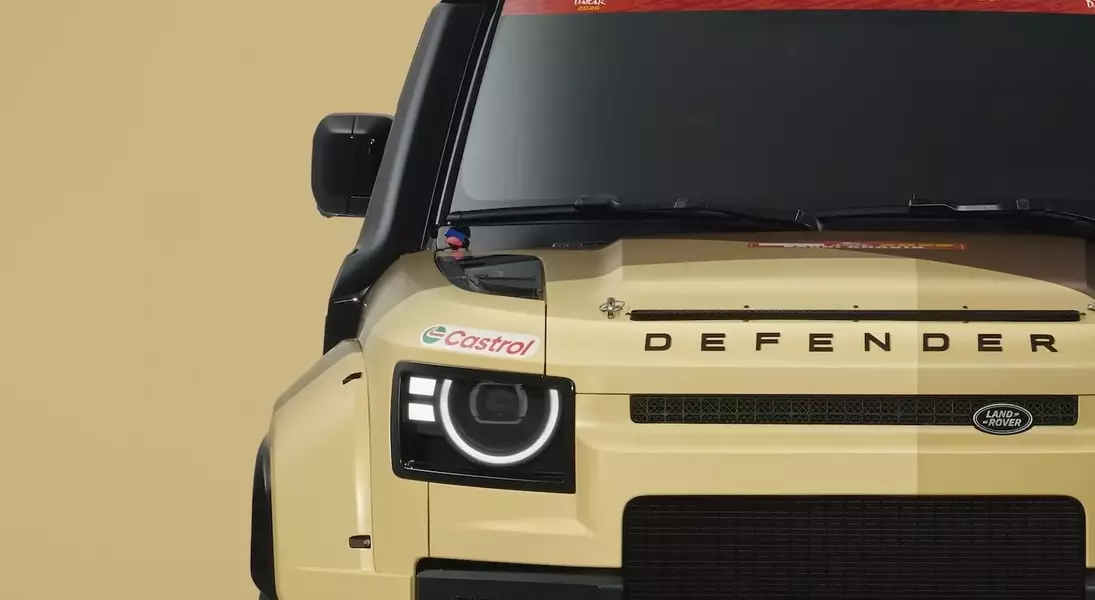
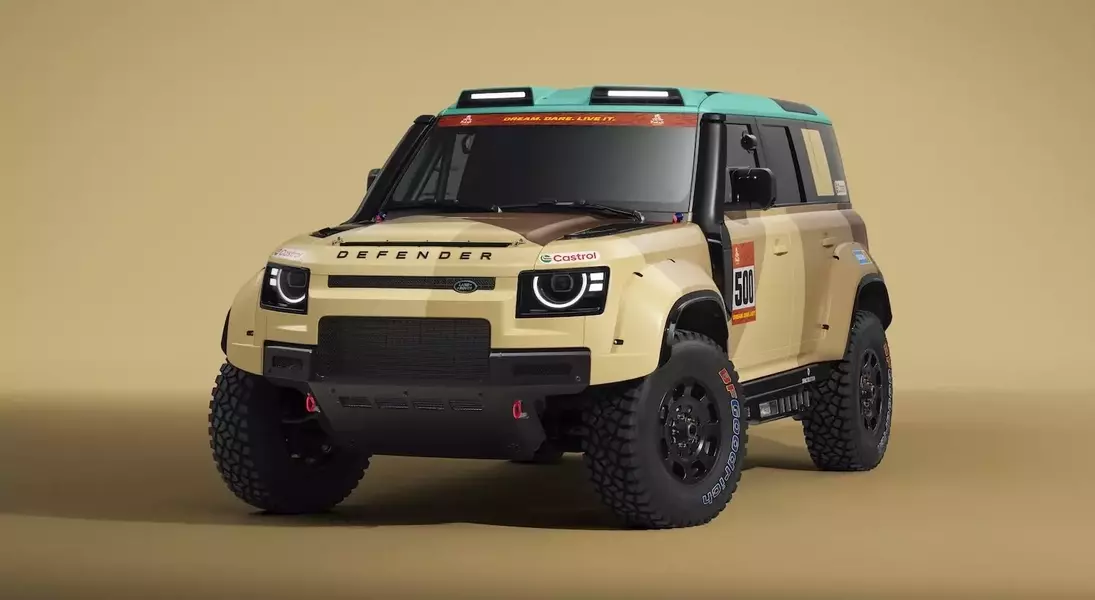
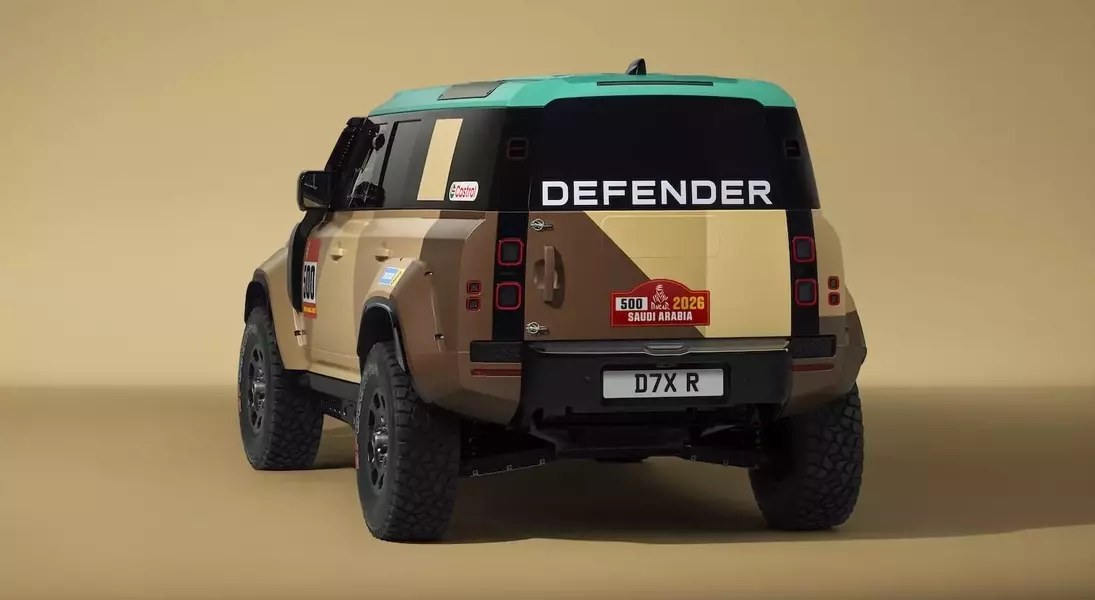
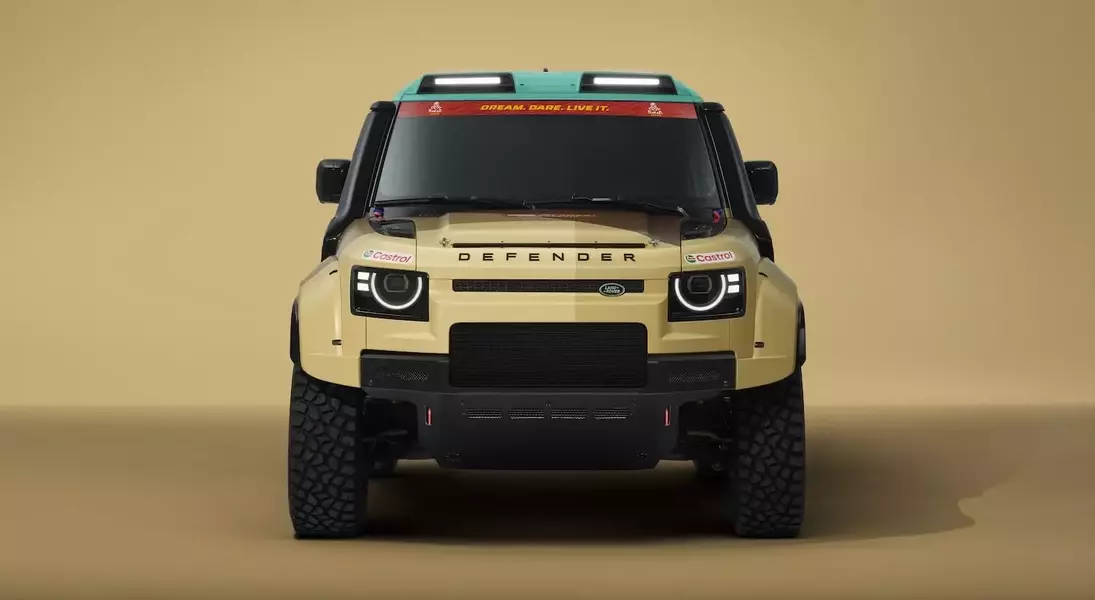
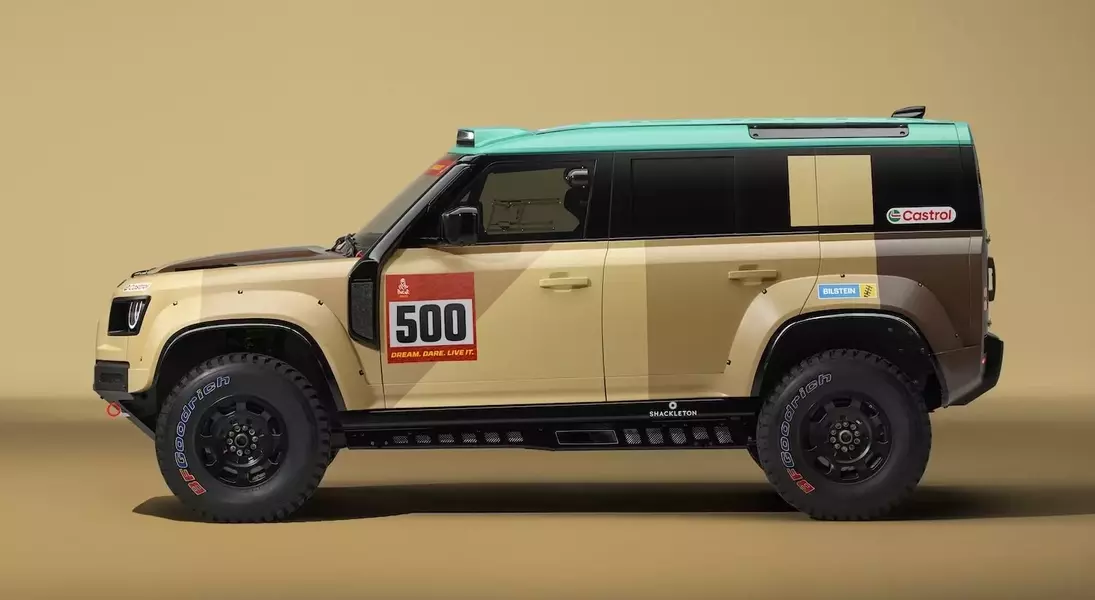
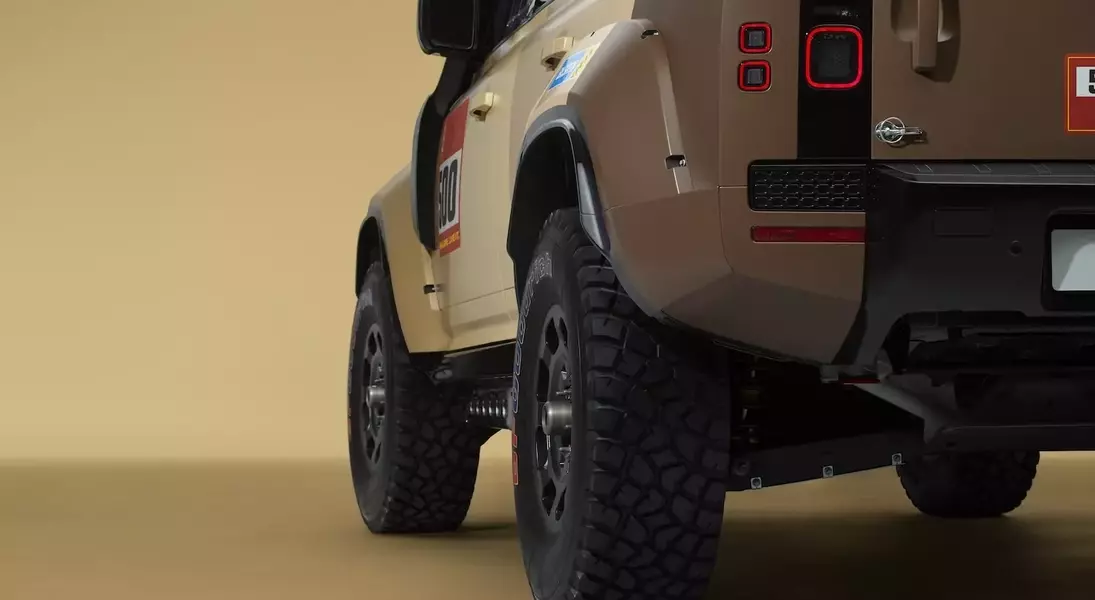
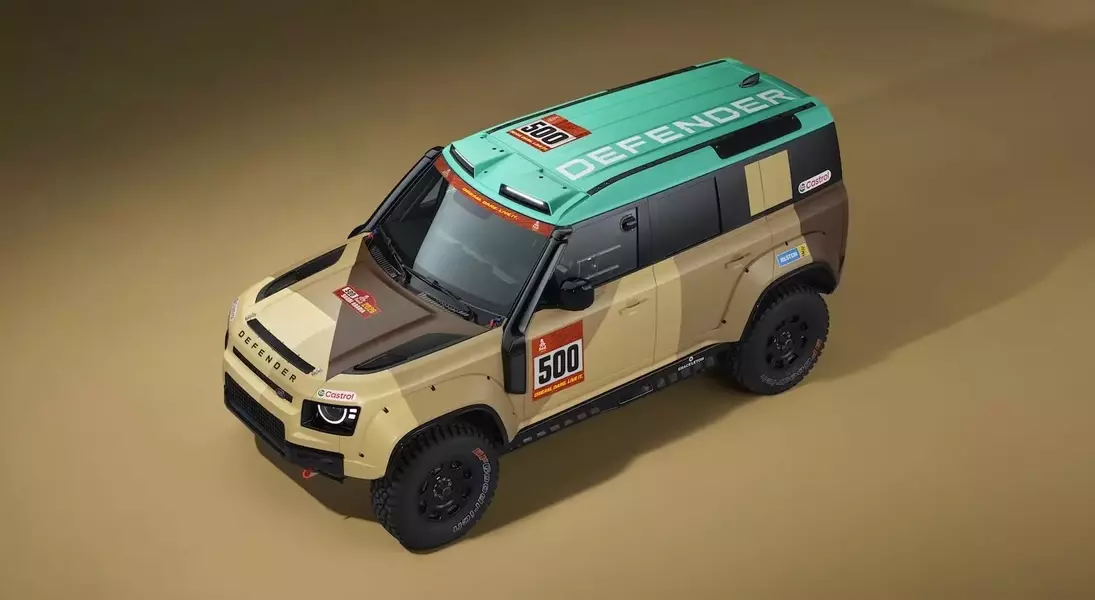
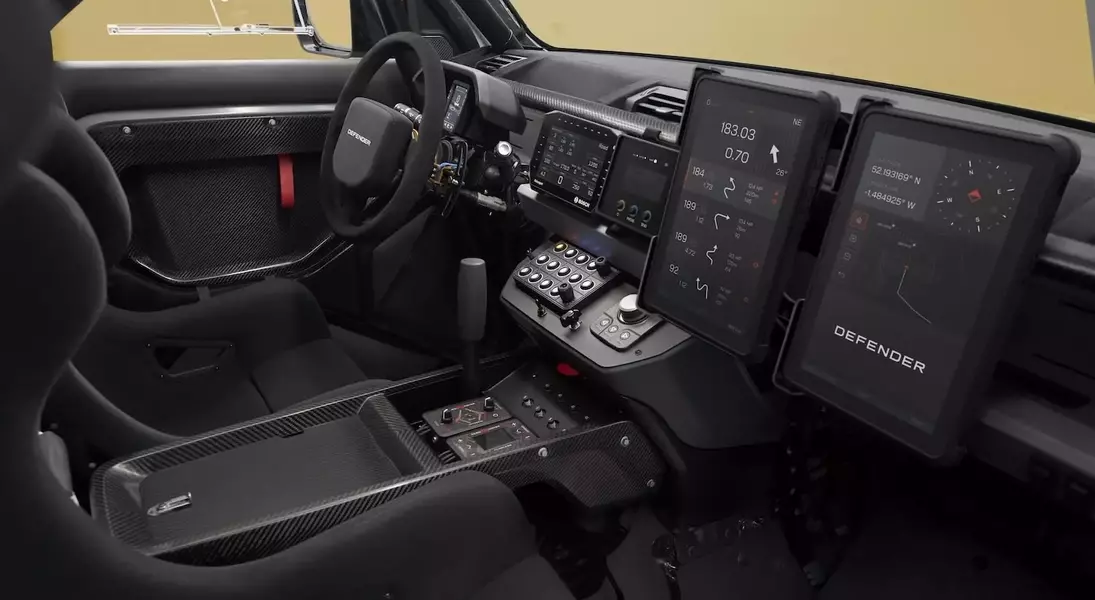
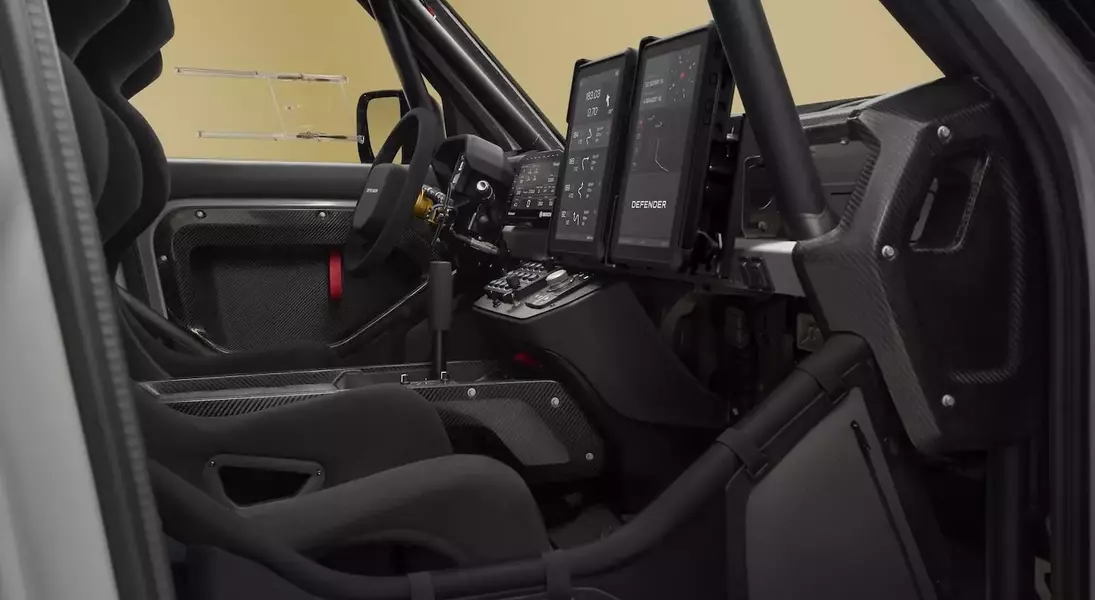
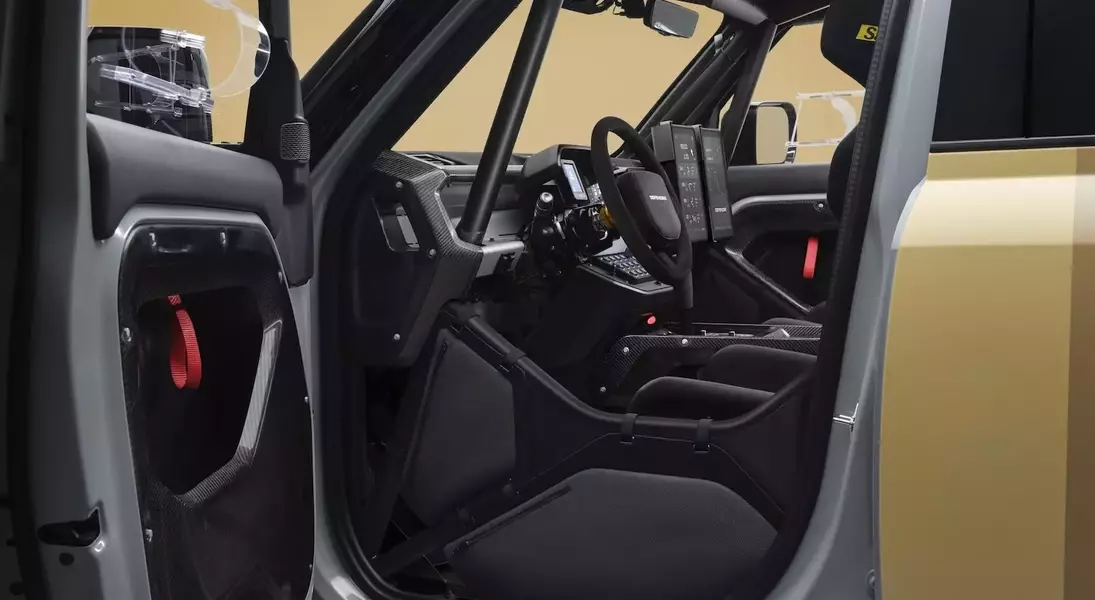
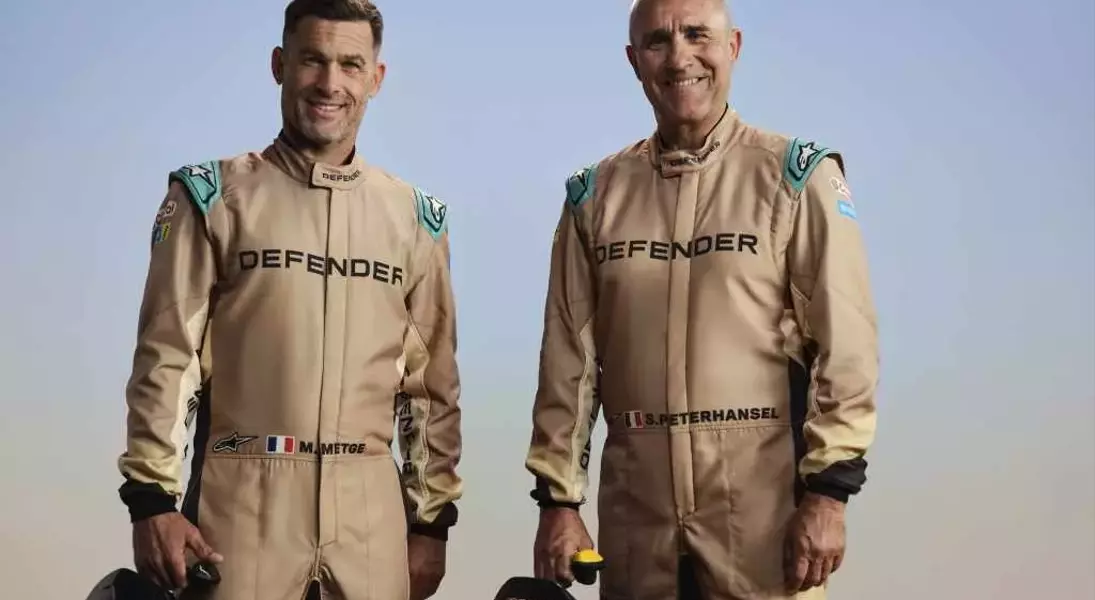



Land Rover is making a significant comeback to the demanding Dakar Rally in 2026, showcasing a highly modified Defender D7X-R. This iteration, built upon the foundation of the formidable Defender OCTA, integrates a twin-turbo V8 engine, specially calibrated to withstand the harshest environments, and introduces an innovative "Flight Mode." This feature is engineered to optimize torque distribution while the vehicle is airborne, facilitating gentle re-entries and safeguarding the drivetrain during the numerous jumps inherent to the rally. With an enlarged fuel capacity, substantial off-road tires, a wider stance, and an advanced suspension co-developed with Bilstein, the D7X-R is meticulously prepared to conquer the desert's extreme challenges. Three accomplished driver and co-driver pairings, including the celebrated Stéphane Peterhansel, will pilot these vehicles through over 8,000 kilometers of unforgiving terrain, aiming to prove Land Rover's enduring spirit and engineering prowess in one of motorsport's ultimate endurance tests.
Land Rover's re-entry into the Dakar Rally in 2026 marks a highly anticipated return, emphasizing its commitment to extreme off-road performance. The Defender D7X-R is a testament to this, leveraging the robust D7x body architecture and powerful 4.4-liter twin-turbo V8 engine from the Defender OCTA, the most capable production Defender to date. Crucially, the engine is modified for optimal performance in harsh desert conditions, incorporating enhanced cooling systems like a redesigned front fascia for superior airflow and a single, large radiator with four fans. A particle filter is also integrated to prevent sand from compromising the air intakes, ensuring reliability over the rally's 4,970-mile course. The suspension system, drawing inspiration from the Defender OCTA, features a performance damper setup with single-coil-over front and parallel twin rear dampers, meticulously refined in collaboration with Bilstein. These comprehensive enhancements, combined with a 550-liter fuel tank and increased ground clearance, solidify the D7X-R's readiness for the grueling two-week event, where three expert teams will navigate the desolate landscapes in pursuit of victory, demonstrating Land Rover's renewed ambition in the world's most challenging rally.
Land Rover's Resurgence at Dakar
Land Rover is poised for a significant return to the Dakar Rally in 2026, an event renowned for being the ultimate test of automotive and human endurance. After a hiatus since the 1990s, the British automaker is fielding the Defender Dakar D7X-R, a specially prepared vehicle designed to tackle the approximately 4,970-mile course across some of the planet's most barren and challenging landscapes. This comeback highlights Land Rover's aspiration to reaffirm its vehicles' core strengths and durability against global competitors in a race that demands nothing less than absolute resilience and engineering excellence. The D7X-R's participation underscores a strategic move to showcase the Defender's capabilities under the most rigorous competitive conditions, further solidifying its legacy in extreme off-road motorsport.
The Dakar Rally remains motorsport's most grueling challenge, demanding peak performance from both machinery and human resolve. The 2026 event will witness Land Rover's anticipated return with the Defender Dakar D7X-R, a meticulously engineered off-road vehicle. This marks the brand's first appearance since the 1990s, aiming to demonstrate the Defender's unmatched durability and engineering prowess. The rally's current format spans nearly 5,000 miles, with over 3,100 miles of timed stages and more than 80 hours of intense competition over two weeks. Navigating vast, roadless deserts, the D7X-R will face relentless conditions that push vehicles to their absolute limits. Land Rover's decision to re-enter this iconic race reflects its commitment to proving the Defender's robustness and advanced technology in the crucible of competitive motorsport, vying for an overall victory that would cement its standing as a leader in extreme off-road capability.
The Defender D7X-R's Innovative Engineering: Including 'Flight Mode'
The Defender Dakar D7X-R integrates cutting-edge modifications, featuring an innovative 'Flight Mode' to enhance its performance in the demanding Dakar Rally. This intelligent system automatically modulates engine torque to the wheels while the vehicle is airborne, ensuring controlled landings and protecting the driveline from potential damage during inevitable jumps. Built on the robust D7x body architecture, the D7X-R shares its transmission and driveline with the high-performance Defender OCTA. Power comes from the OCTA's 4.4-liter twin-turbo V8 engine, which, while largely standard, has specialized coding for optimal operation in extreme environments. Comprehensive powertrain cooling upgrades include a redesigned front fascia for improved airflow, a larger single-unit radiator supported by four fans, and a crucial particle filter to prevent sand ingress. These enhancements, along with a massive 550-liter fuel tank, 35-inch tires, and an increased track width, underscore the D7X-R's readiness for the rally's unparalleled challenges.
The Defender Dakar D7X-R is engineered for the Dakar Rally's unprecedented demands, incorporating a series of advanced features and robust modifications. Among these, the distinctive "Flight Mode" stands out, an ingenious system that dynamically adjusts engine torque while the vehicle is in mid-air. This functionality is crucial for managing the impact of landings after traversing dunes and jumps, thereby safeguarding the vehicle's driveline components and contributing to a smoother, more stable descent. The D7X-R benefits from the same foundational D7x body architecture, transmission, and driveline layout as the Defender OCTA, Land Rover's most capable production model. Its power unit, a 4.4-liter twin-turbo V8, adheres to FIA regulations regarding sustainable fuel and unmodifiable components, yet it receives specific electronic coding to ensure flawless operation in the most severe conditions. The vehicle's thermal management system is significantly upgraded, featuring a re-engineered front fascia for enhanced airflow, a large, single-unit radiator with four cooling fans, and a particle filter to shield the air intakes from sand. Further rally-specific modifications include an expanded 550-liter fuel tank, oversized 35-inch tires, and an increased track width, all contributing to superior ground clearance and stability. The suspension system, developed in partnership with Bilstein, utilizes a kinematic principle similar to the Defender OCTA, with single-coil-over front and parallel twin rear dampers, providing optimal handling and shock absorption over treacherous terrain. These meticulous engineering solutions collectively prepare the D7X-R for the arduous nature of the Dakar Rally, showcasing Land Rover's commitment to innovation and extreme off-road performance.
